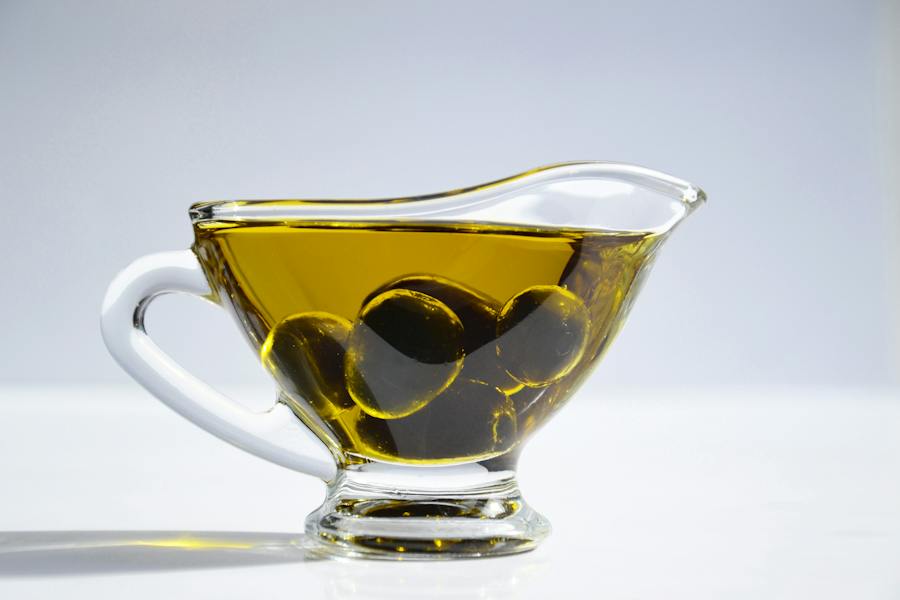Can Olive Oil Go Down The Drain: The Truth About Olive Oil Disposal
Share
The disposal of cooking oils has long been a concern for homeowners and environmentalists. Among the various oils used in cooking, olive oil, a staple in many kitchens, presents a particular challenge. As the popularity of olive oil continues to grow, so does the question of whether it can be safely poured down the drain. This article explores the consequences of improper olive oil disposal, ranging from plumbing nightmares to environmental degradation while providing valuable insights into responsible methods for handling this culinary essential. Understanding the impact of olive oil on your household and the planet is essential for making informed choices about managing this common kitchen ingredient.
Can Olive Oil Go Down The Drain?
No, it’s not advisable to pour olive oil down the drain. Like other cooking oils, olive oil can solidify and clog your plumbing over time. This can lead to costly repairs and environmental issues if it enters sewage systems and waterways. To dispose of olive oil responsibly, consider alternatives like recycling or solidifying the oil before disposal, following local guidelines and regulations.
Problem With Pouring Olive Oil Down The Drain
Pouring olive oil down the drain may seem like a convenient way to dispose of it, but it can cause problems for your plumbing system and the environment. Here, we’ll delve into the issues associated with this common practice.
Plumbing Issues:
One of the immediate concerns of pouring olive oil down the drain is its impact on your plumbing system. Olive oil is a type of fat, and when it cools, it can solidify and adhere to the inner walls of your pipes. Over time, this accumulation of grease can lead to clogs, reduced water flow, and even pipe damage. Plumbing repairs can be expensive and disruptive, so avoiding actions contributing to these issues is essential.
Environmental Impact:
Beyond the home, olive oil disposal down the drain has far-reaching environmental consequences. When olive oil makes its way into sewage systems and waterways, it can have a harmful impact. Oil and grease in water bodies can create a film on the surface, impeding oxygen exchange and sunlight penetration. This disruption can harm aquatic ecosystems, leading to the decline of fish and other aquatic life. Additionally, olive oil pollution can contribute to water quality degradation, affecting both ecosystems and the communities that depend on these water sources.
Sewer Overflows:
The accumulation of fats, oils, and grease (FOG) in sewage systems from olive oil and other sources can lead to sewer overflows. These overflows are unsightly and foul-smelling and pose health risks to humans. Sewer backups can result in raw sewage spilling into streets, homes, or nearby bodies of water, causing contamination and potential disease outbreaks.
Legal And Municipal Regulations:
Many local jurisdictions have regulations to address the FOG disposal issue. Pouring olive oil down the drain may lead to plumbing problems and result in penalties for non-compliance with local regulations. These regulations are typically implemented to protect the plumbing infrastructure and the environment.
Impact On The Environment
The impact of improper olive oil disposal on the environment is a significant concern, extending beyond the kitchen sink. Here, we’ll explore the environmental consequences of allowing olive oil to go down the drain.
- Water Pollution: Olive oil is a cooking oil; like other cooking oils, it doesn’t mix well with water. When olive oil is poured down the drain, it can reach sewage systems and ultimately reach natural water bodies such as rivers, lakes, and oceans. This can result in water pollution, as the oil forms a layer on the water’s surface, preventing oxygen exchange and sunlight penetration. This disruption can harm aquatic ecosystems, leading to the decline of fish and other aquatic life.
- Habitat Disruption: Olive oil pollution can adversely affect aquatic organisms’ habitats. The oil film on the water’s surface can interfere with the feeding and breeding patterns of fish, birds, and other wildlife that rely on these water bodies. This disruption can cascade through ecosystems, causing long-term harm to biodiversity.
- Water Quality: when released into waterways, Olive oil can contribute to poor water quality. The oil can absorb and carry other pollutants, making it a vector for spreading contaminants in aquatic environments. This can further degrade water quality and harm the environment and human health, especially in areas where water is used for drinking and irrigation.
- Economic Impact: Beyond the immediate ecological consequences, environmental pollution from olive oil and other cooking oils can have significant economic implications. Impaired water quality can affect industries such as fisheries and tourism, leading to economic losses for communities that rely on these sectors for their livelihoods.
- Global Perspective: While the impact of a single household pouring olive oil down the drain may seem minor, it’s essential to consider the cumulative effect when millions of households engage in similar practices. Collectively, these actions can contribute to widespread environmental degradation, underscoring the importance of responsible disposal practices.
Alternatives To Disposing Of Olive Oil Down The Drain
Here are some alternatives to disposing of olive oil down the drain:
- Reuse And Repurpose:
One of the most eco-friendly and economical ways to manage used olive oil is to reuse it in cooking. Olive oil can be reused for various culinary purposes, such as sautéing vegetables, frying, marinating meats, or making homemade salad dressings. This reduces waste and saves you money on buying new oil.
- Recycling Programs:
Many communities and recycling centers offer dedicated programs for recycling used cooking oils, including olive oil. These programs often collect used oils for further processing into biodiesel fuel or other valuable products. Check with your local waste management authorities to determine if such recycling options are available.
- Solidification Before Disposal:
Allowing used olive oil to cool and solidify is a safe and straightforward disposal method. Simply pour the oil into a container, such as an empty yogurt tub or plastic bag, and place it in the refrigerator or freezer. Once solidified, seal the container and dispose of it in your household trash. This prevents the oil from clogging your plumbing and minimizes its environmental impact.
- Local Recycling Centers:
Contact your local recycling center or hazardous waste disposal facility to inquire about their guidelines for disposing of used cooking oils. Some facilities have specific drop-off points or collection days for cooking oils to ensure proper recycling and reduce environmental harm.
- Composting (If Appropriate):
Small amounts of used olive oil can be added to compost piles or bins in areas with advanced composting facilities. However, this should be done cautiously, as too much oil can disrupt the composting process and create odor issues. Ensure your composting system can handle fats and oils and follow local composting guidelines.
- Community Collection Events:
Keep an eye out for community-based initiatives or collection events designed to gather used cooking oils from households. Local environmental organizations or municipalities often organize these events. Participating in these events can be an excellent way to ensure responsible disposal while contributing to a more significant sustainability effort.
Bottom Line
In summary, pouring olive oil down the drain is not advisable because it can cause plumbing issues and harm the environment. Instead, opt for responsible alternatives such as recycling, reusing, solidifying before disposal, or participating in local collection programs. By taking these steps, you can protect your home’s plumbing and play a vital role in preserving our natural surroundings, ensuring a cleaner and more sustainable future.
FAQ’s
Why Can’t Olive Oil Go Down The Drain?
Pouring olive oil down the drain is discouraged because it can solidify and accumulate in your plumbing over time. As it cools, olive oil can thicken and adhere to the inner walls of pipes, leading to clogs, reduced water flow, and plumbing issues.
What Are The Consequences Of Pouring Olive Oil Down The Drain?
The consequences of improper olive oil disposal include plumbing problems, potential costly repairs, and environmental harm. When olive oil enters sewage systems and waterways, it can cause water pollution, disrupt aquatic ecosystems, and contribute to sewer overflows.
Can I Mix Olive Oil With Hot Water To Dispose Of It Safely?
While mixing olive oil with hot water might seem like a solution, it’s not recommended. While hot water can temporarily dissolve the oil, as it cools further downstream in your plumbing, it can solidify and cause clogs. It’s best to avoid this practice.
Is It Safe To Use Dishwashing Detergent To Break Down Olive Oil Before Pouring It Down The Drain?
While dishwashing detergent can temporarily emulsify oil and help it mix with water, it doesn’t prevent the long-term effects of oil solidification in your pipes. It’s unreliable for safe disposal and can still lead to plumbing issues.
How Can I Responsibly Dispose Of Olive Oil?
Responsible disposal methods include reusing the oil for cooking, recycling it at designated drop-off locations or recycling centers, solidifying it before disposal, participating in community collection events, or donating it to organizations that use it for wildlife rehabilitation in cases of oil spills.

















